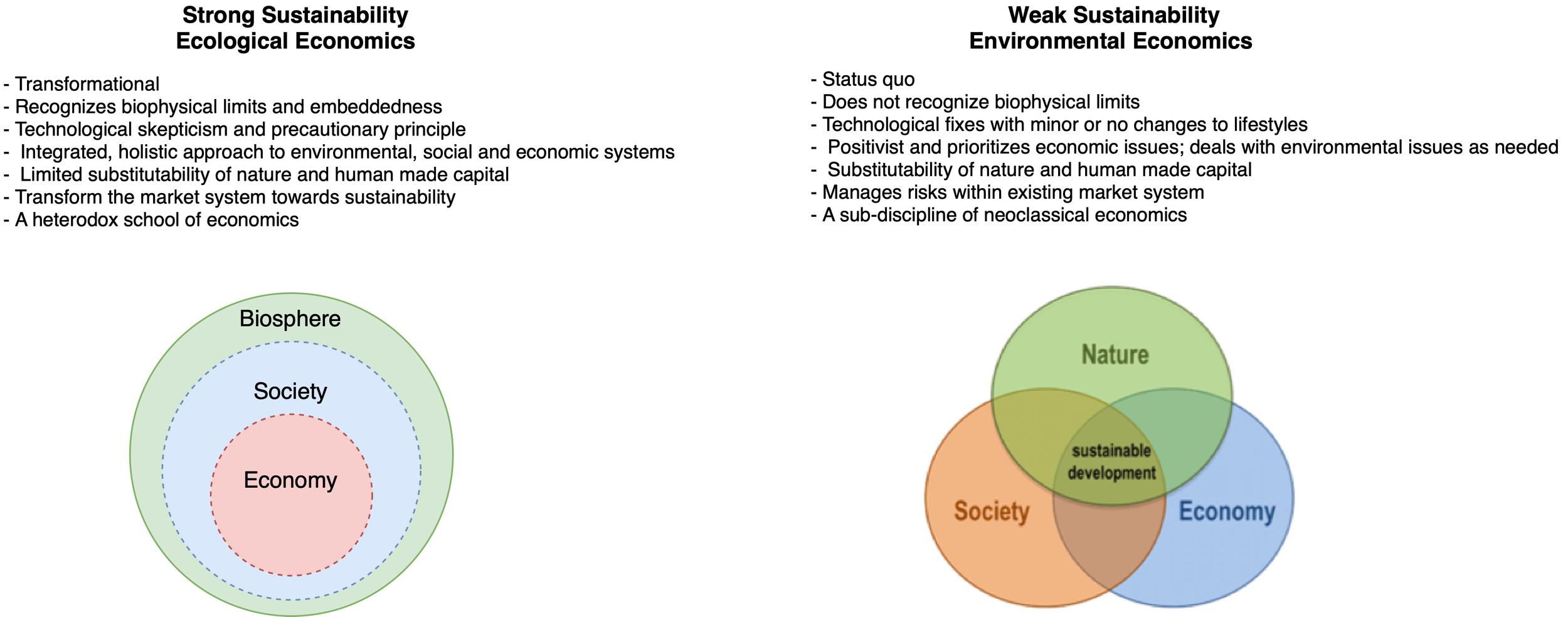
Strong Sustainability
Strong Sustainability
The purview and contributions of ecological economics (EE) are very diverse, and they reflect the complexity of environmental, economic and social systems. EE differentiates itself from all the other fields that aim to address the environment-economic-social nexus in that it has as one of its main tenets the concept of strong sustainability, as opposed to the weak sustainability of conventional economic fields such as resource and environmental economics.
The strong sustainability position states that natural capital cannot be substituted by other forms of capital (produced, human, social, financial) because it is considered a foundational prerequisite for economic and social activity to occur (Dietz, 2007). This EE position has its roots in the understanding of the economy as being embedded in the biophysical world, the role of the laws of thermodynamics (entropy) in the economy and its limits to growth implications; which form part of the original drivers for the creation of EE. Furthermore, Spash (1999) presents a more detailed historical understanding of this differentiation by stating that EE can be seen as a fusion of different types of economics, where ethical issues (equity and distribution) play a central role. This is in contrast to mainstream economics where normative issues of distribution are avoided.
Strong vs. Weak Sustainability. Source: EE4All based on Lombardi et al., (2011).
Would you like to read more?
